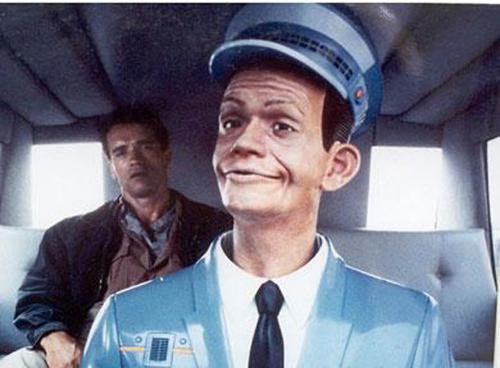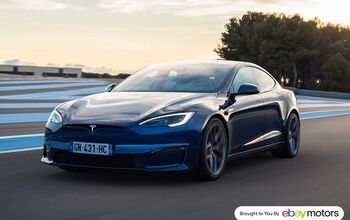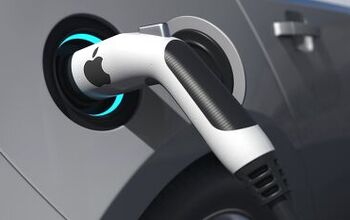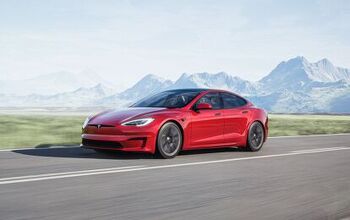9 Views
The Future of Robotic Self-Driving Cars

by
Dan Wallach
(IC: employee)
Published: November 11th, 2010
Share
Science fiction author Charlie Stross recently penned a blog piece on the future impact of autonomously computer-driven cars. Let’s call them “robocars.” I’ve pondered this before and Stross’s post is the perfect jumping-off point for a discussion of the many issues standing between science fiction and the robocar future. Let’s take a look.
{
"id": "9120566",
"alt": "",
"title": "",
"video_link": "https://www.youtube.com/embed/Atmk07Otu9U",
"youtube_video_id": "Atmk07Otu9U"
}
{
"width": 634,
"height": 357,
"showRelated": true
}
>/p>

Dan Wallach
More by Dan Wallach
Published November 11th, 2010 1:44 PM
Latest Car Reviews
Read moreLatest Product Reviews
Read moreRecent Comments
- Kwik_Shift_Pro4X Thankfully I don't have to deal with GDI issues in my Frontier. These cleaners should do well for me if I win.
- Theflyersfan Serious answer time...Honda used to stand for excellence in auto engineering. Their first main claim to fame was the CVCC (we don't need a catalytic converter!) engine and it sent from there. Their suspensions, their VTEC engines, slick manual transmissions, even a stowing minivan seat, all theirs. But I think they've been coasting a bit lately. Yes, the Civic Type-R has a powerful small engine, but the Honda of old would have found a way to get more revs out of it and make it feel like an i-VTEC engine of old instead of any old turbo engine that can be found in a multitude of performance small cars. Their 1.5L turbo-4...well...have they ever figured out the oil dilution problems? Very un-Honda-like. Paint issues that still linger. Cheaper feeling interior trim. All things that fly in the face of what Honda once was. The only thing that they seem to have kept have been the sales staff that treat you with utter contempt for daring to walk into their inner sanctum and wanting a deal on something that isn't a bare-bones CR-V. So Honda, beat the rest of your Japanese and Korean rivals, and plug-in hybridize everything. If you want a relatively (in an engineering way) easy way to get ahead of the curve, raise the CAFE score, and have a major point to advertise, and be able to sell to those who can't plug in easily, sell them on something that will get, for example, 35% better mileage, plug in when you get a chance, and drives like a Honda. Bring back some of the engineering skills that Honda once stood for. And then start introducing a portfolio of EVs once people are more comfortable with the idea of plugging in. People seeing that they can easily use an EV for their daily errands with the gas engine never starting will eventually sell them on a future EV because that range anxiety will be lessened. The all EV leap is still a bridge too far, especially as recent sales numbers have shown. Baby steps. That's how you win people over.
- Theflyersfan If this saves (or delays) an expensive carbon brushing off of the valves down the road, I'll take a case. I understand that can be a very expensive bit of scheduled maintenance.
- Zipper69 A Mini should have 2 doors and 4 cylinders and tires the size of dinner plates.All else is puffery.
- Theflyersfan Just in time for the weekend!!! Usual suspects A: All EVs are evil golf carts, spewing nothing but virtue signaling about saving the earth, all the while hacking the limbs off of small kids in Africa, money losing pits of despair that no buyer would ever need and anyone that buys one is a raging moron with no brains and the automakers who make them want to go bankrupt.(Source: all of the comments on every EV article here posted over the years)Usual suspects B: All EVs are powered by unicorns and lollypops with no pollution, drive like dreams, all drivers don't mind stopping for hours on end, eating trays of fast food at every rest stop waiting for charges, save the world by using no gas and batteries are friendly to everyone, bugs included. Everyone should torch their ICE cars now and buy a Tesla or Bolt post haste.(Source: all of the comments on every EV article here posted over the years)Or those in the middle: Maybe one of these days, when the charging infrastructure is better, or there are more options that don't cost as much, one will be considered as part of a rational decision based on driving needs, purchasing costs environmental impact, total cost of ownership, and ease of charging.(Source: many on this site who don't jump on TTAC the split second an EV article appears and lives to trash everyone who is a fan of EVs.)


































Comments
Join the conversation
For what it's worth, the "auto" in automobile comes from the Greek "autos," meaning "self." It's a vehicle that moves itself, not a vehicle that moves autonomously. ;)